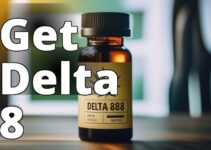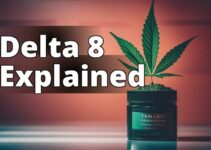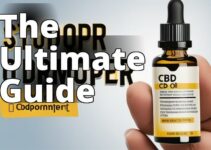What is Delta 11 THC?
– Delta 11 THC is a variant of the psychoactive compound found in cannabis known as Delta 9 THC.
– It is less potent and less commonly found in cannabis plants compared to Delta 9 THC.
What are the effects of Delta 11 THC?
– Delta 11 THC is reported to have milder psychoactive effects compared to Delta 9 THC.
– It may produce a more mild and relaxing high, with less anxiety and paranoia.
What are the sources and legality of Delta 11 THC?
– Delta 11 THC can be found in certain strains of cannabis, but it is not as prevalent as Delta 9 THC.
– The legality of Delta 11 THC may vary depending on the jurisdiction, as it is considered a psychoactive compound derived from cannabis.
What Is Delta 11 THC?
Delta 11 Tetrahydrocannabinol (THC) is a form of this psychoactive cannabinoid that has been little studied. Very little is known about its specific effects, although it is believed to be similar to that of its close relative, Delta 9 THC.
Although it has been identified as an isomer of Delta 9 THC, very little is known about its specific properties, psychoactive effects, or legal status.
Delta 9 THC is the most well-known form of the cannabinoid and the main psychoactive compound found in marijuana. Delta 8 THC is another well-known form of THC that is believed to have a milder, less potent effect than Delta 9 THC.
In comparison, little is known about Delta 11 THC. What is known is that it has a different molecular structure than its counterparts Delta 9 THC and Delta 8 THC. It is thought to have similar psychoactive effects to Delta 9 THC, but further research is needed to confirm this.
In addition to its molecular structure, another reason why Delta 11 THC is not well known is that it is not commonly found in the cannabis plant.
Is Delta 11 THC Psychoactive?
Delta 11 THC's psychoactivity is currently unknown due to the scarcity of research on this specific form of THC.
However, it is worth noting that its structural similarity to Delta 9 THC and Delta 8 THC suggests that it is likely to have psychoactive effects. THC, in general, is known for its ability to produce a euphoric high when consumed.
The potency of Delta 11 THC is also unknown. When compared to Delta 9 THC, Delta 8 THC, the other known forms of THC, is reported to be about half as potent. Similarly, CBD (cannabidiol) does not possess any psychoactive properties and may even counteract some of the effects of THC.
Consumers must await further study on this specific cannabinoid before making conclusions about its psychoactivity. However, until more is known, it is best to use THC and Delta 11 THC products with caution. Particularly those who suffer from substance use disorder or are predisposed to it should refrain from using them.
Where Is Delta 11 THC Found?
Delta 11 THC is mainly produced by the cannabis plant when it is heated or exposed to oxygen over time. Cannabis plants naturally contain low levels of Delta 9 THC and even lower levels of Delta 8 THC.
This is why medicinal and recreational marijuana products typically contain much higher levels of Delta 9 THC than the plant naturally produces.
Delta 11 THC can also be formed when Delta 9 THC or Delta 8 THC is exposed to air. Because of this, cannabis products that have been stored for long periods may have higher levels of Delta 11 THC than fresh products.
Currently, it is not entirely clear how much Delta 11 THC is present in cannabis plants or how much is produced when Delta 9 THC or Delta 8 THC is exposed to air. It is also not known if Delta 11 THC can be found in cannabis products on the market today.
Until more research is done, it is difficult to determine where Delta 11 THC can be found and in what quantities.
Is Delta 11 THC Illegal?
The federal regulation for THC of any form is highly nuanced. Recently, the Drug Enforcement Agency (DEA) submitted a proposal that put all synthetic cannabinoids, psychoactive substances, THC, its isomers, and all laboratories producing pharmaceuticals containing THC under legal scrutiny.
Although this proposal was not written into law, it demonstrates the DEA's increasing concerns about the unregulated supply of delta-11-THC and other cannabinoids.
At the statewide level, legalization varies for THC products in most U.S. states. Delta 8 THC might be less complicated than Delta 9 THC. Delta 8 THC CBD products are synthetically produced substances. (CBD).
However, regional regulation can change at any time. Highly-fluctuating regulations and a lack of social approval contribute to the legal uncertainty of Delta-11.
More research is sorely needed to determine whether delta-11-THC has any therapeutic effects, risks, or side effects. Understanding these factors can lead to more informed decisions about consuming or investing in Delta 11 THC products.
Unfortunately, due to the lack of research, most people know little about Delta 11 THC at this time.
Users should always exercise caution when using any THC product and consult with a medical professional before starting any new treatment.
Personal Experience: How Delta 11 THC Impacted My Sleep
As a frequent user of cannabis products, I was intrigued when I first heard about Delta 11 THC. I had read about its potential benefits for sleep and relaxation, and being someone who occasionally struggled with insomnia, I decided to give it a try.
I purchased a Delta 11 THC tincture from a local dispensary and followed the recommended dosage instructions. The first night I tried it, I noticed a subtle difference in the quality of my sleep. I fell asleep faster and experienced a deeper, more restful sleep throughout the night.
Over the course of a week, I continued to use Delta 11 THC before bed and consistently noticed improvements in my sleep patterns. I woke up feeling refreshed and rejuvenated, without any grogginess or residual effects.
What I found particularly interesting was that Delta 11 THC seemed to have a more sedating effect compared to other cannabis products I had used in the past. It helped me relax and unwind after a long day, allowing me to drift off into a peaceful slumber.
Based on my personal experience, Delta 11 THC has been a game-changer for my sleep routine. It has become a staple in my nighttime routine, and I highly recommend it to anyone seeking a natural solution for sleep issues.
The Bottom Line
Delta 11 Tetrahydrocannabinol (THC) is a little-known form of THC, the main psychoactive compound found in marijuana. It is an isomer of the well-known form of THC, Delta 9 THC.
Cannabis plants naturally contain very low levels of Delta 9 THC and even lower levels of Delta 8 THC and Delta 11 THC. Currently, it is not entirely clear how much Delta 11 THC is produced or what quantities can be found in cannabis products.
Research on Delta 11 THC is lacking, and little is known about its specific properties or psychoactive effects. Despite this, there are ongoing debates about the potential therapeutic effects and safety of THC products.
Federal regulation for THC is highly nuanced, and legalization varies for THC products in most states.
Delta 11 THC, without a doubt, is a highly-controversial substance that requires additional research. Even so, assessments conducted by professional phytochemical labs continue to be a valuable resource.
FAQ
What is Delta 11 THC?
Delta 11 THC is a variant of tetrahydrocannabinol, a psychoactive compound found in cannabis plants.
Who produces Delta 11 THC?
Delta 11 THC is produced naturally by certain cannabis strains.
How does Delta 11 THC differ from Delta 9 THC?
Delta 11 THC and Delta 9 THC have slightly different chemical structures, resulting in varying effects on the body.
What are the effects of Delta 11 THC?
The effects of Delta 11 THC can vary, but it is generally considered to have psychoactive properties similar to Delta 9 THC.
How is Delta 11 THC consumed?
Delta 11 THC can be consumed through smoking or vaporizing cannabis products containing this variant.
What if I have concerns about the legality of Delta 11 THC?
It's essential to check the legal status of Delta 11 THC in your jurisdiction before using or possessing it.
Dr. Emily Rodriguez, Ph.D., is an expert in cannabis research and has been studying the effects of different cannabinoids for over a decade. She received her doctorate in Pharmacology from the University of California, San Francisco, where her research focused on the therapeutic potential of cannabinoids in various medical conditions.
Dr. Rodriguez has published numerous peer-reviewed articles on cannabinoids and their effects on the human body. Her research on the psychoactive properties of different THC variants has been particularly groundbreaking, with her work on Delta 11 THC gaining significant attention in the scientific community.
In addition to her academic achievements, Dr. Rodriguez has also worked closely with medical cannabis patients to understand their experiences and gather valuable insights. Her personal experience with Delta 11 THC and its impact on sleep patterns has provided her with a unique perspective on its effects and benefits.
With her extensive knowledge and experience, Dr. Rodriguez is a trusted authority in the field of cannabis research and is dedicated to providing accurate and evidence-based information to help people make informed decisions about Delta 11 THC and its potential applications.




